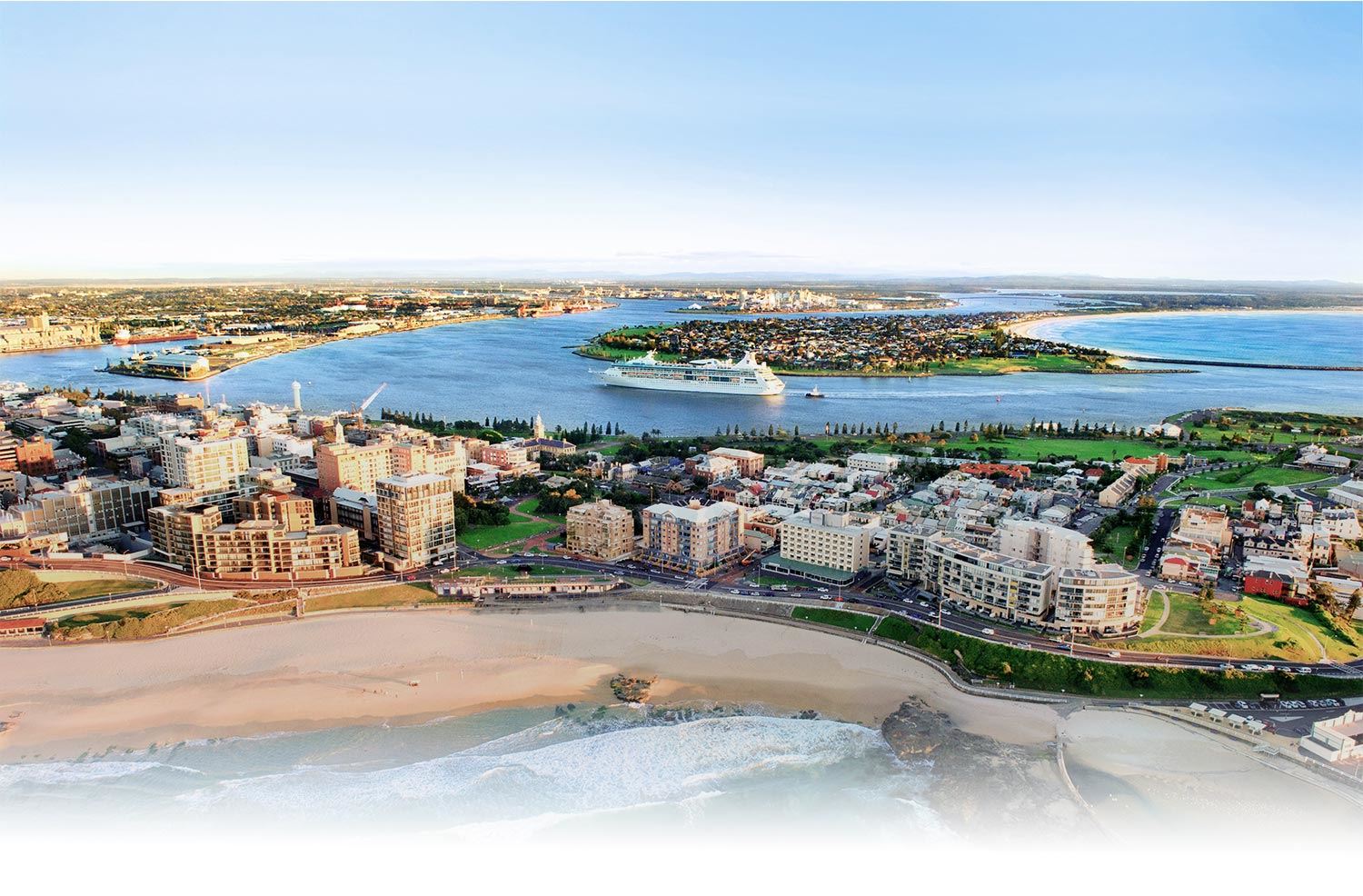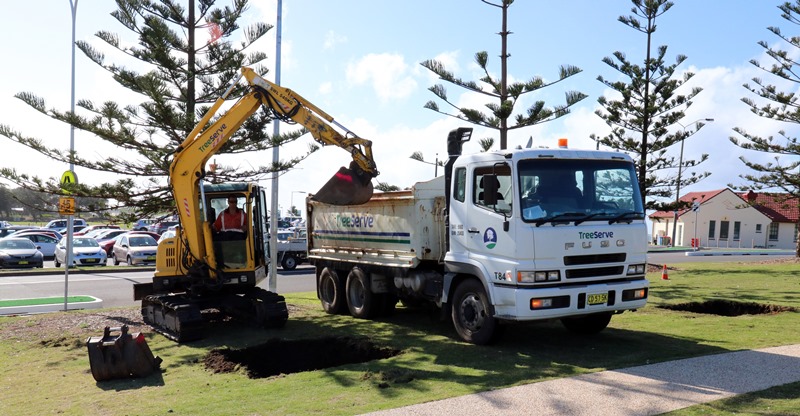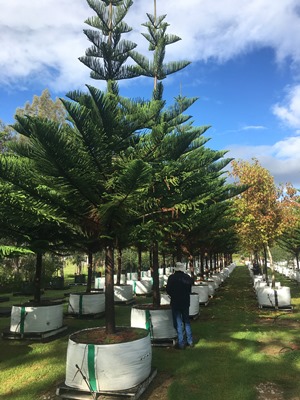
Preparations begin for Foreshore tree replanting
17 May 2018
Preparations have begun for the next stage of tree replanting in Newcastle's Foreshore Park - a project which will create a greener public space with vastly more usable shade.
Newcastle City Council crews have started digging holes along the eastern end of Foreshore Park, near the Nobbys Rd/Wharf Rd roundabout, to accommodate the first of 32 mature Norfolk Island pines destined for the precinct.

Lord Mayor Nuatali Nelmes said the trees had been grown by a specialist nursery on the Central Coast specifically for this use.
"These new mature Norfolk Island pines will create a more inviting space for people visiting our spectacular Foreshore Park," she said.
"The precinct as we know it today is now 30 years old, and the changes underway are in line with our vision for an improved, greener, more user-friendly, and sustainable public space."

The Norfolk Island pines (pictured) vary from 6m to 9m in height.
"The Norfolk Island pines are the first stage of plantings that will also include broad-leaved lilly pillies, coastal banksias, native hibiscuses and kentia palms throughout the Foreshore precinct," the Lord Mayor said.
"Once fully grown, the trees will provide more than 9800sqm of usable shade - 20 times more than what was available prior to work commencing in 2017 and consistent with our Foreshore Plan of Management.
"The Newcastle 500 event allowed us to start implementing the adopted plans for Foreshore Park and the new plantings align with the precinct's future use as Newcastle's major regional event space."
The holes will be filled with high-quality soil to help the trees thrive once planted.
Future stages of replanting will take place as the trees become available and when conditions best suit.
Trees in stage one will also be planted in front of Customs House, around the new Wharf Rd car park and on the northern side of Wharf Rd adjacent to Horseshoe Beach Rd and on the northern side of the amphitheatre near the Nobbys roundabout.
Staged planting provides the best opportunity for each specimen to take root, survive and thrive in the harsh coastal conditions.











